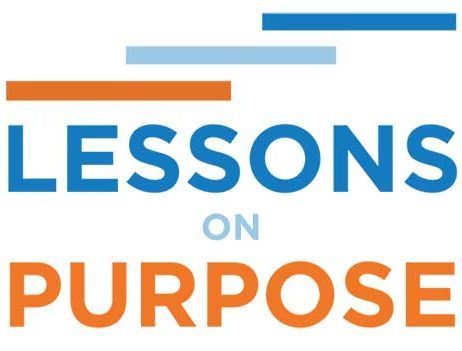It is easy to make things complicated and very hard to make things simple.
I have seen a direct correlation in my life between success and simplicity. The most successful businesses I have worked with know their purpose and simplify their offer and create clear messages to consumers, while many have failed trying to be too much to too many. In education I have seen teachers struggle with explaining a concept, exasperating their pupils. But I have seen great teachers, who are masters of their subject, simplify complex concepts, give context, meet students where they are, and simplify to educate vs confuse students.
As a student of Jesus and the Bible, I have found a few verses that speak to the need for us to simplify:
- God made man simple, our complex problems are our own doing (Ecc 7:30)
- What you think, you become (Phil 4:8)
It may seem easy for a golfer to roll in a 5- foot putt, a speaker to do a TED talk, or a marketer to create a compelling tag line. These things are not simple tasks – they appear easy as the person performing has mastered their task. I want to explore a few lessons on simplicity, so I (and you) can think less about physical and digital things, and more about the important things of life.
Here are a few truths I have learned with the goal to simplify things in my life:
- Love simple things: one of my favorite teachers in high school had us seek simple insights in complex literature, and one I remember (~40 years later) was his teaching point in Dostoevsky’s Brothers Karamazov. Dostoevsky wrote about loving the simple things in creation – every leaf, every ray of light, every animal and plant – as then, and only then, can you perceive the divine mystery of things. When you focus on simple things, their beauty unfolds and you can understand them, and life, better. I believe that the simple things in life are the secret to happiness and joy – a walk in the woods, time talking to your spouse or child, a laugh with an old friend – simple can be magical. And deep.
- Simplify your possessions: there are over 49,000 storage facilities in the US, 2 billion sq feet, enough for 6 sq feet per person1. We have a ‘too many things’ problem in the US. To create simplicity our lives we need to work on being less attached to things. Our overconsumption leads to too many things, and has spawned a $10B industry2 helping folks get organized and simplify (e.g. Marie Kondo and Home Edit). Philosopher Soren Kierkegaard describes our need to own things as tied to our need for security, and says that ‘riches, pretending to be security, become an object of anxiety’. I agree and have seen that in my life and as I work to orient my life to fewer things. I have my office down to less than one box of things, and just a few years ago had 9 boxes overflowing with things in my workspace. Not every flat surface needs something on it, and not every hanger in my closets needs a shirt.
- Simplify your digital life: laptops, smartphones and digital storage were intended to make us more efficient, but – left unmanaged – can become an unruly mess and stressor. At one point I had digital files spread across a work laptop, home PC, external hard drives, Apple and Google digital files. Those files are now neatly organized into one Google Drive – which I can access from any device. Here are a few tips to simplify your digital life: (1) do an inventory of your digital life, and ensure you know the current state of storage, apps and devices; (2) pick one digital file location , set a file structure that make sense to you, and then touch every file one time – putting it in a new file folder, or deleting it; (3) organize your phone home screen to one page – I created one ‘extra’ folder where I place things I am not sure about; (4) delete files and apps that you either don’t ever use or don’t bring you joy. This takes time and effort, but you will gain momentum if you start.
- Don’t buy beyond your means: I have been guilty of buying beyond my ability to pay cash. Not only does that behavior create a financial burden but it creates complexity. More stuff = more space needed and more things to clean, organize and worry about. The secret here is to wait, delaying that dopamine rush when you ‘click to buy’, and make sure you can pay cash for what you buy. Many Americans go overboard at holiday time, buying piles of toys for their kids – as a show of love – later to throw them away, or ‘save them for the grandkids’ in their over-stuffed garage or storage unit. One idea for you that we recently implemented: gift 4 things for your kids: one thing they want, one thing they need, one thing to wear and one thing to read.
- Share: I live in a city working to create a circular economy3 one focused on reusing, repairing, sharing, lending, and promoting all activities that give goods and resources a new life. I take joy is taking things we no longer need and finding them a new home via Goodwill, Facebook marketplace or Craigslist. The need is there – I recently posted a mattress for free and had 180 people respond in need. Sharing is a way to bless others while simplifying your own life.
Henry David Thoreau spent 2 years reflecting and writing on the important things in life while in nature. In his book Walden he issues a mantra we could all use to bring less complexity and more joy into our lives – ‘Simplify, Simplify’. I encourage you to give something away, clear your desk (and storage unit), your digital footprint and focus on simple things, and watch as beauty and peace unfold.
- https://www.sparefoot.com/self-storage/news/1432-self-storage-industry-statistics/
- https://www.statista.com/statistics/622446/value-of-the-us-home-organization-market/
- https://www.a2gov.org/departments/sustainability/Sustainability-Me/Pages/Circular-Economy.aspx

